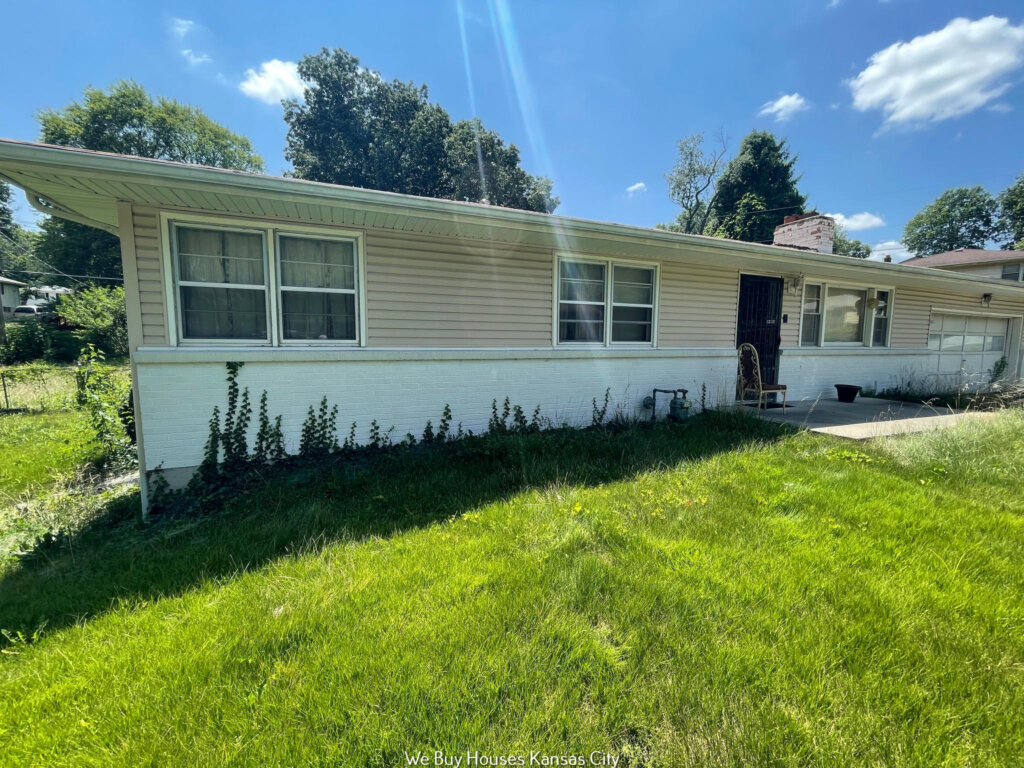
It’s no secret that tax troubles may cause a lot of worry in your finances, but they can also make selling your house much more difficult when you’re ready to move on. There are numerous sorts of liens that can be placed on your home for missed payments; one of the most prevalent and difficult to remove is a tax lien. A tax lien is one of the most concerning things the IRS can do to you, but if you have one placed on your property, you are not out of options. In reality, if you work with the appropriate experts, you may still be able to sell a house with a tax lien attached.
Here’s everything you should know.
What is a Lien?
A lien on your home is a legal declaration made against your property by an individual or company to whom you owe money. Liens are widely utilized in collateralized loan arrangements.
If you fail to pay your mortgage and the lender forecloses, any person with a lien on the property may be able to receive a portion of the selling proceeds as repayment. Liens limit the owner’s ability to use an asset by giving creditors a stake in the property in exchange for what they owe them.
If a homeowner attempts to sell a residence before a lien is released, it can lead to complications—especially if the lien is involuntary. Liens provide creditors with legal rights, particularly when a borrower fails to pay or refuses to meet their financial obligations. In certain circumstances, the creditor may choose to sell the property.
Is it bad to have a lien on your house?
There are two types of property liens, and one is significantly more concerning than the other: voluntary and involuntary. A voluntary lien, such as your mortgage, isn’t considered bad, so long as you continue to repay it on schedule. Involuntary liens on a home, though, can present a serious challenge if you want to sell the property. To avoid headaches, involuntary liens like contractor’s, judgment, and tax liens should be resolved as soon as possible. (1)
Types of Property Liens
Creditors can legally file varying types of lines on a property. These include the following.
Tax Lien
When homeowners owe back taxes, the government can record tax liens on their properties. To eliminate the lien, the property owner must repay the debt. Homeowners can also hire a real estate attorney to negotiate or contest the lien. Tax liens frequently have priority over all other liens, including principal mortgage debts.
This is one of the reasons why most mortgage lenders include property taxes in mortgage payment schedules and pay taxes on the borrower’s behalf through an escrow account: it reduces risk and protects the lenders’ interest in the property. The federal government has the authority to file IRS liens against residence owners who fail to repay income taxes on money earned. When IRS liens go unpaid, the federal government may foreclose on a property to collect the obligation. It’s also worth noting that state and local governments can file tax liens for unpaid levies and taxes.
Mechanic’s Lien
Construction companies, builders, and contractors can file a mechanic’s lien if a property owner fails or refuses to pay for finished work or supplies. This legal instrument permits organizations to seek compensation when payment troubles arise as a result of a violation of the contract. Before filing this sort of lien, most contractors and businesses give the debtor a payment request as well as a notice of intent. They may proceed if the defaulter refuses to settle.
This entails filing papers with the county or appropriate local agency outlining the property, the type of service performed, and the amount payable. The lienholder may decide to pursue the lien if the debtor refuses to pay the money.
General Judgment Lien
This form of lien is awarded to a creditor when a court rules in their favor. When a defaulter fails to satisfy their financial obligations, the creditor may choose to sue the debtor in court for the remaining sum. If the court rules in a way that benefits the creditor, they must record the lien with the county or the relevant recording agency. This grants the filer the authority to seize a piece of property, real or personal if the debtor does not agree to pay the debt.
Property can include a business, personal property, real estate, or any other asset that meets the court’s requirements.
Mortgage Lien
A mortgage lien is a legal declaration on your property that acts as collateral (or actual security) for your mortgage. This implies that if you default or cease making mortgage payments, the lien allows the lender to take control of and sell your house to repay the unpaid amount. A mortgage lien is not necessarily bad if you continue to make regular loan payments. All homeowners with mortgages have a lien against their property.
On the other hand, involuntary liens are imposed on properties when owners fail to pay their debts, such as property taxes. To sell your house, you’ll need to get these liens erased, which might be tough to achieve if you don’t have the funds to pay the debt. Mortgage liens often have two tiers or priorities: primary and secondary.
- Primary lien: The first mortgage is the main lien. Lenders always want to make sure they have that first-priority lien. If a householder defaults, the lender wants to have security in place that guarantees they will receive as much funds back as possible first without any regard to the second lien bearer.
- Secondary lien: If a residence owner already has a mortgage registered against the property to purchase the home, they may desire to borrow against that equity from the same or a different lender in the form of a second mortgage.
Homeowners’ Association Lien
An HOA lien is a declaration against a property made to recover overdue HOA dues. When a homeowner falls behind on their dues, the HOA has the authority to lay a lien on their property. If the owner fails to pay the entire lien, the HOA may eventually foreclose on the property. This is a major situation that you should avoid if feasible.
If you’re experiencing difficulties paying your dues, contact your HOA. This implies the owner will be unable to sell or refinance their home until the remaining payment is paid in full.
Judgment Lien
This lien is a claim on a debtor’s property resulting from a judgment against a defendant who fails to pay a debt. The lien provides a security interest in the debtor’s property until the creditor’s obligation is satisfied or the connected property is taken control of. A judgment lien is superior or senior to all subsequent liens issued after the judgment but junior to any liens that existed before the judgment.
Child Support Lien
A Child Support Lien is a hold on a property until past-due child support is paid. These liens will be filed without a judicial hearing. Before selling a property, the parent must satisfy or release any outstanding child support liens. A lien is immediately imposed for past-due support of $500 or more.
Past-due support for a Child Support Lien excludes outstanding birth costs, fees, and interest.
Step-by-Step Process of Selling a Property with a Lien
Identify and Authenticate Any Liens on your Property
It’s possible that a creditor placed a lien on your property without alerting you. Another possibility is that there was one on your property before you inherited it or purchased it at auction. What is the good news? This information will be made publicly available.
Typically, you can check for liens on your address using the websites of your local clerk, county recorder, or assessor. You can also request an Owners and Encumbrance (O&E) Report from a title company. The following stage will rely on your present financial status and the validity of the lien.
Dispute or Negotiate the Lien with Legal Assistance
If you intend to challenge the lien or pay a settlement, you should speak with an experienced legal professional. If you believe your lien is invalid or illegal, your attorney may file a spurious lien action in court. Tax liens can be very tricky, so consult a lawyer for the best outcomes. They will verify that you receive a discharge certificate from the IRS and that the process is completed correctly.
Another thing to keep in mind is that mechanic’s lien regulations differ by state, so if you suspect the lien was not filed correctly, you should speak with a lawyer. For example, if your contractor did not file the lien promptly after the work was completed, you may be entitled to dispute it. You may propose to negotiate a settlement with your creditor with the assistance of a lawyer. Then, your lawyer will ensure that the creditor agrees to release the lien in writing once you have paid the agreed-upon amount.
If you’ve already paid a lien but it still appears in public records, contact the proper entity and submit evidence of lien release.
Pay off the Lien and Clear the Title
Paying your debts may be the simplest way to get a lien off your property before selling it. This will clear the title and prevent any complications with the closing. You may even be able to pay it off with a home equity loan. Just ensure you receive a lien release showing the obligation has been paid. It may also be known as a lien discharge or termination form.
Review Your Alternatives for Selling Your Home
Once the liens have been resolved, you will need to devise a sales strategy. Depending on your situation, you can choose to sell your house through a typical agent who would list it on the local Multiple Listing Service (MLS). If your home is in marketable shape, this may make a lot of sense. However, if you want to sell quickly and don’t have the money for repairs, there is a viable alternative.
We buy houses Kansas City companies enable homeowners to receive cash offers from investors with no commitment to accept them. Their marketplace fosters competition for your home, giving you more options and the chance of a higher price. You’ll be able to get various bids and sell your home as-is. Additionally, you can close in as little as ten days.
Maintain Transparency Throughout the Process
Nothing ruins a transaction faster than dishonesty. Regardless of how you choose to sell, you must inform everyone involved that your home has a lien on it prior to starting the contract and closing process. Explain how you intend to resolve the matter so that you can transfer the title free and clear. Then, notify everyone when the lien is paid and again when you receive your certificate of discharge or lien release.
This will ensure there are fewer hiccups when selling your home and managing the debt payoff process.
Get Cash Offers
If you intend to use the sale profits to pay off your obligations, obtain a payment letter from the creditor detailing how much you owe and give it to your escrow agent. Some of the funds will be used to resolve the matter, but the rest will be yours to use as you see fit, such as purchasing a new home, paying off other debts, or investing in your future. While this may complicate traditional sales, selling with we buy ugly houses Kansas City firms streamlines the process. You won’t have to worry about customers backing out before you have a chance to clear the obscured title.
You might earn cash and a quick close without the hassle of traditional sales.
Merits of Accepting a Cash Offer for a Property with a Lien

Quick and Hassle-Free Transaction
When you sell your property with a lien to Kansas City we buy houses companies; you avoid the lengthy waits and mountains of paperwork. Here’s the thing: cash sales typically close within a week or two. In contrast, a standard sale can take months to complete. Why? Because there is no waiting for bank approvals.
Cash buyers have the funds available, so there is no need for mortgage applications or lending snags. Furthermore, they frequently purchase your home “as is.” This means you don’t have to deal with the liens placed on your property.
Avoiding the Pitfalls of Traditional Selling
Selling your property the usual way might be a hassle. It typically involves agents, listing services, and the unforeseen factor of purchasers requiring finance, resulting in delays. Many of these issues can be avoided by working with we buy houses in Kansas City firms. There are no listings to handle, so you don’t have to worry about arranging your house for multiple showings or making renovations to please potential buyers.
You won’t have to worry about buyers bailing out at the last minute owing to failing financing, nor will you have to deal with bank loans that move slowly. This simple and quick approach provides peace of mind and a faster payout. Remember, cash buyers bring speed and simplicity to the table.
No need for Repairs or Renovations
Selling your house to we buy houses Kansas City, MO organizations allows you to avoid the headache of repairing it. Forget about extensive cleaning, painting walls, and repairing leaking faucets. These organizations often buy property as-is. This strategy can help you save both time and money.
You will not have to spend weeks or even months preparing your property for showings. You won’t have to spend thousands on house upgrades that may or may not raise the sale price. This uncomplicated process not only simplifies but also expedites the sale of your house, allowing you to go on to your next adventure without delay.
Reduce the Fees you Pay to Brokers
Not only does the closing procedure of a real estate deal take a long time, but it also typically costs thousands of dollars, amounting to around 8% of the purchase price. This money covers regulatory fees for the brokers and realtors involved and other charges linked with obtaining a mortgage, known as closing costs. When you sell your house fast Kansas City to a cash buyer, you will enjoy the most stress-free way of completing a real estate deal because they eliminate all third-party involvement. That hefty 8% fee goes directly to your pocket.
This is undoubtedly the way to go if you want to get the most out of your property.
Flexibility in Negotiations
Cash offers might provide you with a distinct bargaining stance and flexibility in discussions. Cash buyers are frequently perceived as more serious and committed, providing you an advantage when negotiating the terms of the transaction. Whether it’s the price, the closing date, or other factors, you have greater leeway to achieve a beneficial outcome.
Potential for Lower Closing Costs
Closing costs in traditional house sales can build up and eat into your profits. However, cash offers cut these costs, putting more money in your pocket. Closing costs are the expenses incurred in the last stages of a real estate transaction. They often include title insurance, appraisal, legal expenses, and other costs.
These fees can be contingent on the property’s worth and location.

